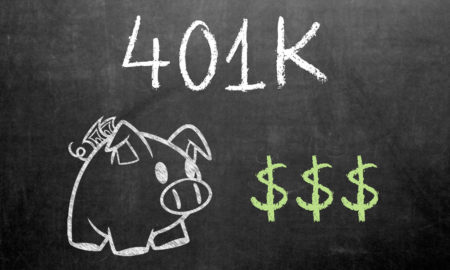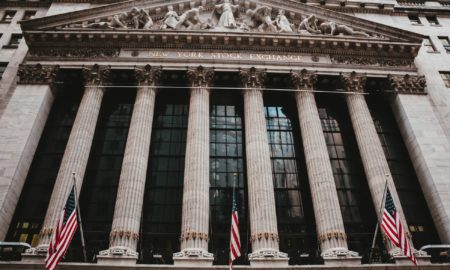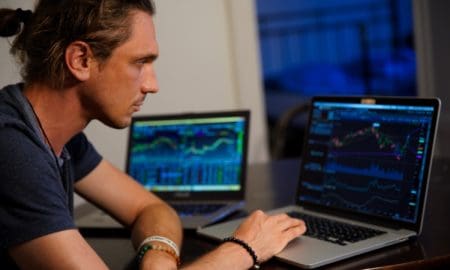

We all make mistakes with our money. Especially when it comes to investing. Most notably, the mistake most people are making when it comes to investing is not investing at all.
This is especially true for the millennial generation. Millennials are currently in their 20s and early 30s and at a prime time in their lives to leverage the power of investing. Unfortunately, according to a Bankrate survey, only 26 percent of millennials under the age of 30 are investing in the stock market.
The stark reality is if you’re not investing in your 20s then you’re actually missing out on significant returns over the course of your lifetime. Just to drive this point home, we asked 27 of today’s personal finance experts what they wish they’d known about investing in their 20s.
Heed carefully and learn from their mistakes.
1. Roll Over Your 401k
A common mistake that several personal finance experts made was cashing out their company 401ks when they were in their 20s.
“Don’t EVER cash out a 401k when you leave a company – roll it over!” says Jessica Garabino of Every Single Dollar. “The penalities and taxes along with the compounding interest you could have earned will drive you crazy in the future.”
2. Investing Isn’t About Picking the Best Stock
“Investing isn’t about finding the next Microsoft in it’s infancy,” says Todd Tressider, successful investor and founder of Financial Mentor.
Instead, Tressider believes that investing done right is a process based on mathematical expectancy. It’s a process he teaches readers of his blog, which is well worth a read.
3. The Difference Between Passive Income and Active Income
Rachael Hernandez, author and real estate investor at Adventures in Mobile Homes says she wishes she would have known the difference between active and passive income. “It may have changed my view on how to approach investing and making money at an early age.”
4. Rental Property Comes With Fees and Expenses You Wouldn’t Expect
Real estate is a popular form of investing. Unfortunately, some financial experts learned the hard way that they should have budgeted for fees.
“I wish I knew that buying property came with fees and expenses that you would never expect,” says Martin Dasko of Studenomics. He advises that beginning real estate investors do their research and pick the brain of someone who already happens to be a landlord.
5. Scoop Up Rental Properties As Soon As You Can
“I wish I would have started snapping up rental properties in my 20s,” said Mindy Jensen of online real estate magazine Bigger Pockets. “I didn’t know about multifamily properties back then. The passive income from the rentals would have made me a millionaire by now, probably many times over.”
6. It’s Not That Scary to Invest
There’s a lot of fear when it comes to investing. For some reason [Editor’s note: *cough* never-ending fear-mongering from mainstream financial media *cough*], the only stories people seem to remember are those of Ponzi schemes, market crashes and investors losing millions.
It’s this kind of common fear that often keeps people from investing in their 20s. It’s no wonder then that many financial experts cited this as one of their mistakes.
Out of 23 experts interviewed, more than half wished they knew that investing wasn’t so scary. Had they known this, many of them say they would have started investing in their 20s instead of waiting so long.
Michelle Shroeder-Gardner of Making Sense of Cents puts it in perspective for us when she says, “I wish I would have known that it’s not as scary as I originally thought. Even though I have three finance-related college degrees, actually putting your own money into an investment can be quite scary. However, once you get past that first hurdle it’s not so scary anymore.”
7. Debt Will Impact Your Ability To Invest
How debt affected their ability to invest was another huge topic among financial experts. In particular, how student loan debt would stop them from being able to invest as much money as they would have liked.
Natalie Bacon, founder of popular personal finance site TheFinancegirl.com and self-described recovering attorney, wishes she would have known how taking out loans for law school would keep her from making any meaningful investments later on.
8. The Power of Index Funds
“Let’s see: I turned 20 in 1994. The S&P 500 has returned 531.561% since then. I wish I would have known about index funds earlier.” says Leslie Van Zee of Mosaic Financial Partners.
Teresa Mears of Living on The Cheap and Miranda Marquit of Planting Money Seeds agree with Van Zee, had they known about indexing they would have invested more money in these kinds of funds.
9. The Power of Compound Interest
“I wish I knew how powerful compound interest really was and that to start investing doesn’t take much work,” says Grayson Bell of Debt Roundup.
10. Don’t Touch Your Retirement Money Before You Retire
“When I was in my 20s I thought I hadn’t saved enough for retirement. So I took the money out of my retirement investments and spent it” recalls Jackie Beck, the blogger behind The Debt Myth.
11. There’s More to Investing Than a 401k
Another common theme among personal finance experts was wishing they’d known about other ways to invest besides a company 401k.
“When I was young and had my first ‘career’ job, I thought company 401ks was the only thing people invested in,” says Lindsey Knerl of 1099Mom. “ I didn’t know anything about investing, nor did I care to learn, because the bulk of my education was from the company HR manager who had me fill out my forms for the company plan. I feel like I missed out on an opportunity to learn and diversify.”.
Erin Marie of Journey to Saving agrees. In her case, none of her employers every offered a company 401k, so she thought she couldn’t actually invest.
“It wasn’t until after I started reading personal finance blogs that I realized there’s more to investing than a company 401k”, says Erin.
12. There’s More To Investing Than What Your Advisor Is Trying to Sell You
Todd Tressider also chimed in on this one and took a step further. “I wish I had known the full range of investments and their different functions – that it’s not just stocks, bonds and mutual funds that an advisor can sell you,” he says. “Owning your own business and rental real estate are superior to more traditional assets if your goal is to build wealth, because of leverage and tax advantage principles.”
13. You Don’t Have to Be Rich to Invest
“Investing was a very vague and out of reach concept because no one discussed it with me,” says Michelle Jackson, founder of the Shop My Closet Project and creator of the Girl Gone Frugal podcast. “I wish people had been clear that investing wasn’t an out of reach option for me just because I wasn’t rich.”
Sandy Smith of Yes! I Am Cheap echoes these sentiments, “I wish I would have known how little I needed to invest each month in order to have a million dollar portolio.”
14. An Understanding of Risk Management
“I wish I knew more about risk management in my 20s,” says Kirk Chisholm of Innovative Advisory Group. “The internet bubble and bust happened in my 20s. While I understood asset allocation well enough, it was hard to ignore all the ‘easy’ gains that people were making on internet stocks”
He goes on to say how risk management is one of the most important things an investor needs to learn. Fortunately, Chisholm says it’s easy to learn about risk management while using small amounts of money.
15. How to Analyze Individual Stocks
David Winchell of Winchell Wealth Management described his former investment strategy as “learning how to lose every game in a casino.” Now he understands that proper research will help you find the best stocks for your portfolio.
16. Always Max Out a 401k
Robert Farrington, millennial money expert and blogger behind TheCollegeInvestor.com, wishes he’d known to max out his company 401k. “So much lost potential savings,” he sighs.
17. Not Taking Advantage of 401k Employer Matching
Esther King of ForUsAll.com also laments not having taken advantage of her company 401k plan. “ I wish I appreciated the company match I got in my first job,” she says. “ It was my first job out of college and the first time I’d thought about a 401k. [And] I didn’t end up enrolling until after 2 years into the job. Here’s what I missed out on: 100% match on the first $1,500 contributed, a 50% match on the second $1,500, and a 33% match on the next $7,500.”
18. Understanding That The Market Moves In Cycles
Many of the financial experts we interviewed for this article said they actually stopped investing in their 20s when they saw the market drop. This was because they didn’t fully understand that the market moves in cycles.
Kate Dore of Cashville Skyline relays how she stopped investing for an entire year during the financial crisis. “ I was a couple of years out of college, making less than $30,000, and I freaked out when my investments lost a big chunk of their value,” she recalls. “ While I was squirreling money into a savings account, I missed out on the chance to purchase some seriously cheap stocks and index funds! Even worse, I bypassed the chance to earn compounding returns on that fresh capital for an entire year.”
Eric Rosenberg of Personal Profitability agrees, “Before you invest in anything, you should know how the stock market works.”
19. It’s Not About Beating The Market
Investing is a long-term game, not a get rich quick scheme.
“I tuned into those popular investment shows religiously because I thought I had to beat the market,” says Joseph Hogue of Peer Finance 101. “I ended up losing a lot of money to investment fees and bad advice.”
20. There’s a Difference Between Investing and Saving
“I saved money I wasn’t planning to use when I should have invested it for better returns,” says Jason Vitug, CEO of Phroogal, crowdfunding expert and mastermind behind The Road to Financial Wellness. “Alternatively, I invested as if I was saving for a purchase.”
Final Thoughts
When it comes to investing, people are petrified of making a mistake and losing all their money. In reality, with proper education and discipline, losing all your money is actually a difficult thing to do. With the wealth of information now available online, combined with a variety of different vehicles in which to invest, people can learn how to invest properly and ride out the market swings.
The good news is that if these financial experts can make mistakes and bounce back from them, then so can everyone else. Whether you’re currently in your 20s or not, take these words of wisdom and run with them.



































